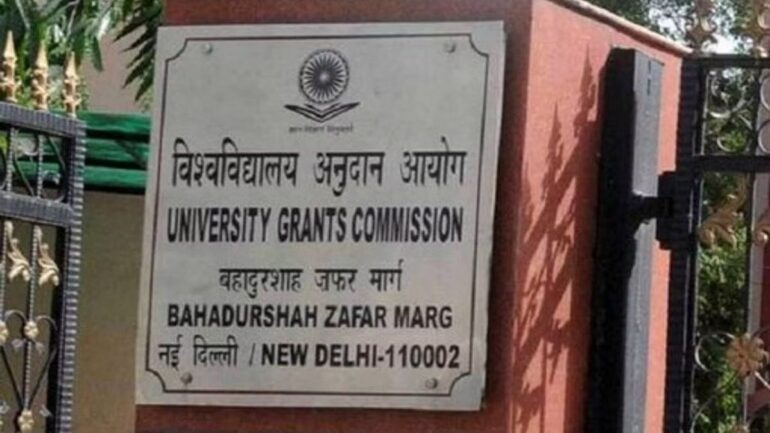TL;DR:
- UGC urges Higher Educational Institutions (HEIs) to upgrade AI courses for students of all backgrounds.
- The ‘National Programme on Artificial Intelligence (NPAI) Skilling Framework report aims to facilitate widespread AI skill development.
- Key focus areas include staying updated on AI advancements, utilizing generative AI tools for productivity, and fostering AI talents.
- AI’s role in improving human interactions, decision-making, social good, data privacy, legal ethics, and responsible AI practices is emphasized.
- The current gap between the demand and supply of AI professionals in India is approximately 51% and is expected to grow by 2024.
- Educational institutions see the NPAI initiative as a positive step toward enhancing AI-based technical and non-technical courses.
- AI integration in education caters to students with varying abilities, and AI-driven data utilization in business is creating new job opportunities.
Main AI News:
In a strategic move to bridge the gap between demand and supply in the field of Artificial Intelligence (AI) professionals, the University Grants Commission (UGC) has called upon Higher Educational Institutions (HEIs) to revamp their AI courses. This directive aims to cater to students from diverse academic backgrounds and equip them with the skills necessary to navigate the ever-evolving AI landscape.
The UGC has put forth the ‘National Programme on Artificial Intelligence (NPAI) Skilling Framework’ report, which is designed to facilitate extensive AI skill development. This framework advocates for a comprehensive reconfiguration of AI courses, accommodating both technical and non-technical students.
The report identifies key areas of focus to meet the current industry demands, emphasizing the importance of staying updated on AI advancements, leveraging generative AI tools for productivity enhancement, and nurturing AI talents for job and learning enhancement. Additionally, it highlights the significance of using AI to improve human interactions and decision-making processes and its potential for social good, including solving complex problems and providing citizen services. The framework also underscores the importance of AI data privacy, legal ethics, and responsible AI practices.
Manish Ratnakar Joshi, Secretary of the UGC, asserts, “In today’s world, AI finds mass applicability across various fields, making it essential for students from diverse academic backgrounds to acquire AI skills. The integration of Large Language Models (LLM) like ChatGPT into AI courses is a testament to the ever-evolving nature of this field.”
With AI and Data Mining already being taught in various Indian universities, the rapid evolution of technology necessitates the realignment of these courses with the National Skills Qualification Framework (NSQF). Joshi further underscores the need for remapping courses and creating a new skilling landscape to meet the surging demand for AI professionals.
“The skills outlined in the report must be seamlessly integrated into existing courses, aligning with the parameters recommended. For instance, AI courses have been around since the 1960s, but the recent introduction of technologies like ChatGPT and LLM calls for an immediate update of these courses and their alignment with NSQF,” adds Joshi.
According to the ‘State of Data Science & AI Skills In India’ report by NASSCOM, India currently boasts a talent base of 420,000 AI professionals as of August 2022, with a demand exceeding 630,000. This disparity between supply and demand currently stands at approximately 51%, a gap that is expected to widen. By 2024, India is projected to require over 1 million AI/Data Science professionals.
Educationists view the Ministry of Electronics & Information Technology (MeiTY) and the Ministry of Skill Development and Entrepreneurship’s NPAI initiative as a positive development that will bolster both technical and non-technical AI courses. Dinesh Babu Jayagopi, an associate professor at IIIT-Bangalore, remarks, “Skilled AI trainers are scarce, with increasing demand in academic institutions and industries. As the demand for AI/ML engineers continues to rise, government intervention can be instrumental in aligning with the national program’s goals, forming task forces, and fostering collaboration among stakeholders.“
Educational institutions are integrating AI to provide personalized education, catering to students of varying abilities. Jaskiran Arora, Dean of Education Quality at BML Munjal University, highlights the growing importance of AI in business operations. He states, “AI is becoming more sophisticated each day, reshaping industries with adaptive and generative AI technologies like ChatGPT and Bard. Businesses must embrace AI-driven data collection through IoT and utilize this data intelligently to enhance efficiency, leading to innovative business models, products, and technologies, thus creating new employment opportunities that require AI-enabled professionals.”
In a letter addressed to HEIs, the UGC underscores the Ministry of Electronics & Information Technology’s (MeiTY) commitment to implementing the National Program on Artificial Intelligence (NPAI). A dedicated committee, tasked with creating a Skilling Framework for AI, has assessed the current status of National Skill Qualification Framework (NSQF)-aligned AI qualifications and recommended strategies and timelines for upscaling AI-based skill courses. Their efforts have culminated in the ‘National Programme on Artificial Intelligence (NPAI) Skilling Framework,’ aimed at aligning skilling initiatives with the NSQF framework, thereby reshaping the future of AI education in India.
Conclusion:
The UGC’s directive to elevate AI education in higher institutions responds to the growing demand for AI professionals in India. This initiative, guided by the NPAI Skilling Framework, highlights the need for students from diverse backgrounds to acquire AI skills. The government’s involvement and the integration of AI in education and business operations signify a significant opportunity for the market, with a potential surge in AI-related job opportunities and the evolution of new business models and technologies.

